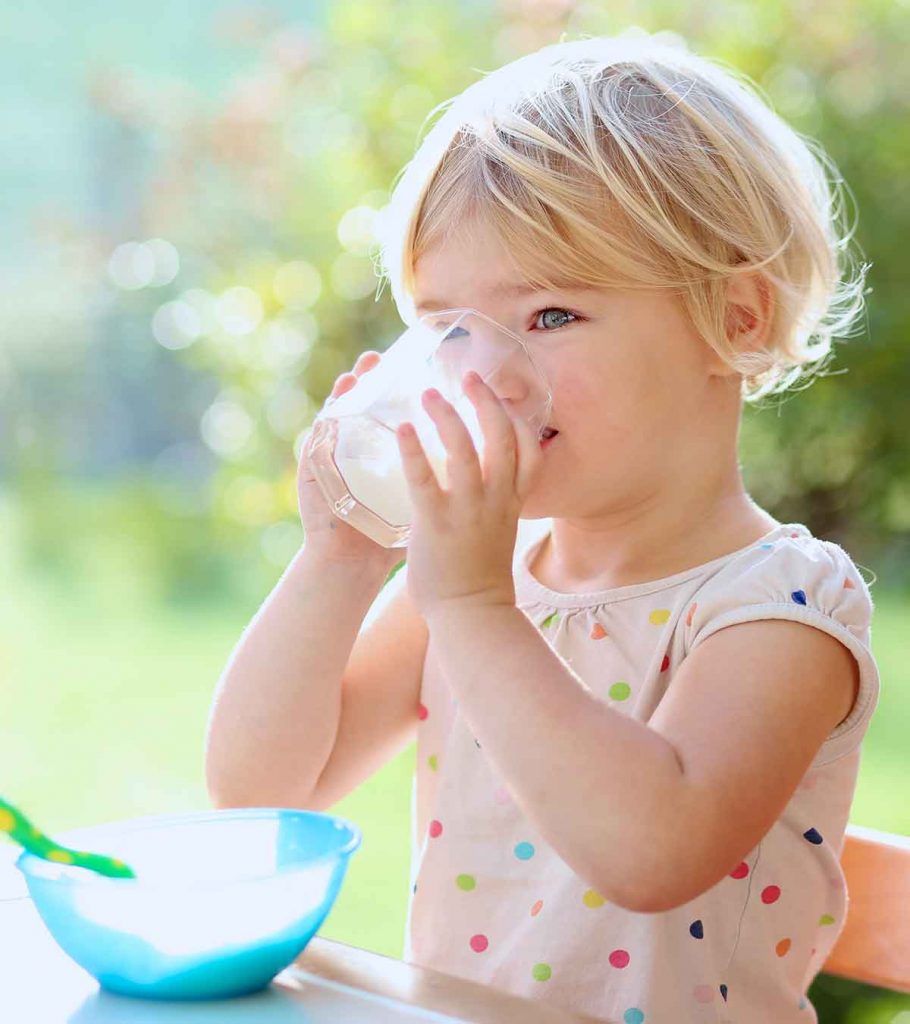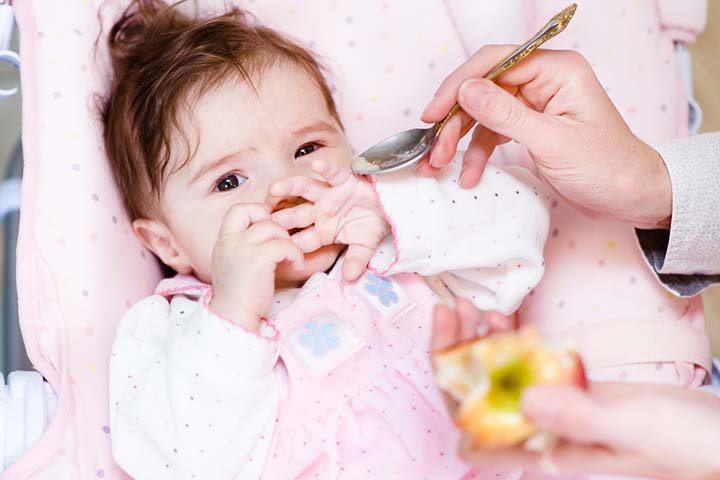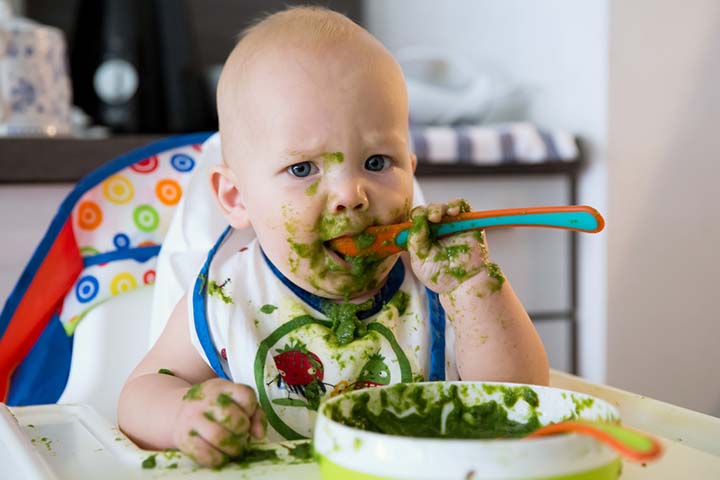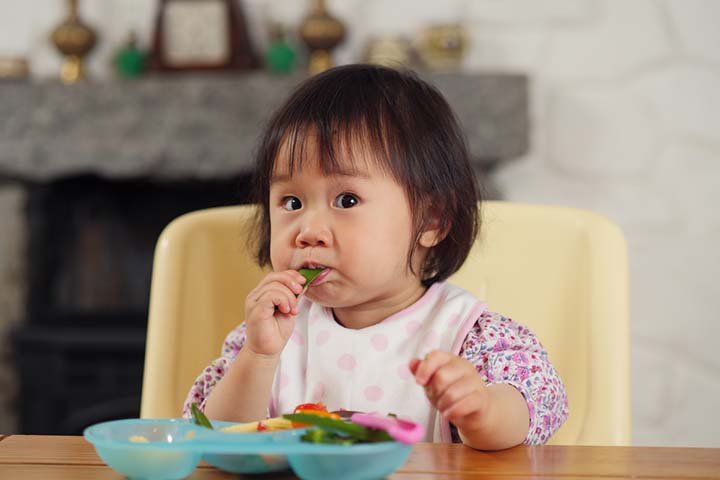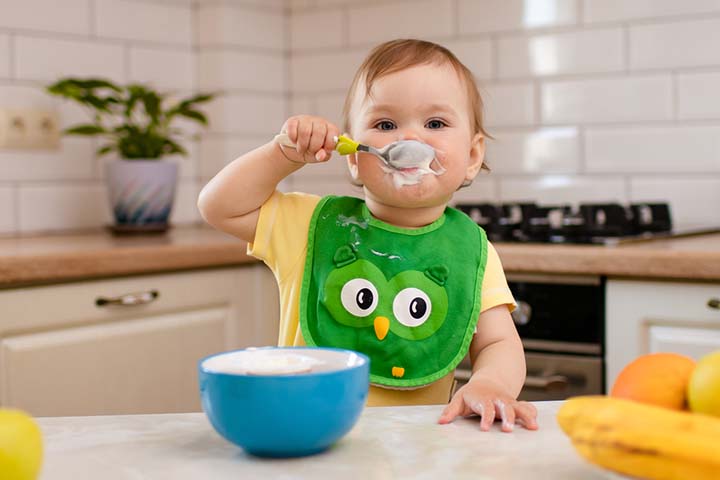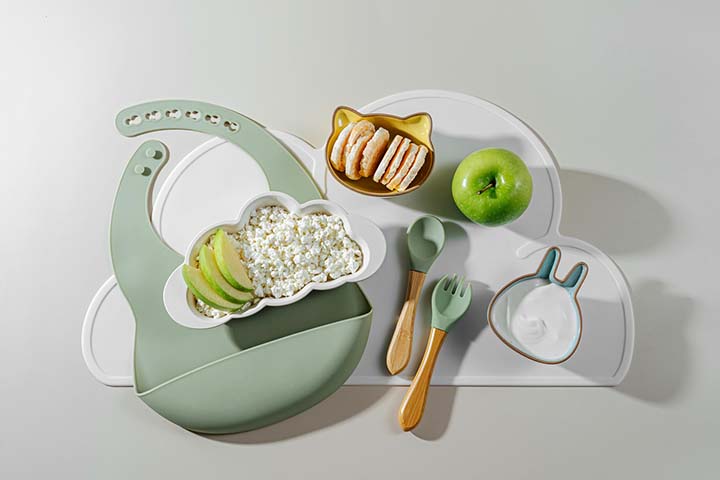If you plan to introduce new food ideas for an 18 months baby to ensure their proper growth and development, you have come to the right place. As children grow, their tastes and preferences change. Therefore, you should introduce a variety of food to fulfill their growing nutritional needs.
Children can eat almost all foods except those that may cause choking hazards at this age. So, you can offer them three meals and two wholesome snacks to ensure they stay healthy and energetic.
This post provides you with tips on making mealtime enjoyable for your 18-month-old baby.
Tips To Increase Appetite
Now is the time when growth takes a backseat in children. So expect some more crankiness during eating. They develop reduced appetite as they are keener to explore new skills. Let them eat whatever they like and demand food when hungry. Cooking for a baby after careful meal planning can ensure that their meals are nutritious and appealing.
Try to follow these simple tips to increase your toddler’s appetite:
- Never serve fruit along with a meal. Try to give them cut fruits around 2 hours before the main meal.
- Do not feed him different kinds of foods one after the other. Let your toddler walk or play enough before coming to have his food. It will make him drained of energy, and he will feel hungry.
- If a toddler states they are not hungry, listen to them. You do not have to run their appetite as per the clock.
Below are the best food habits for 18 month old baby (1):
1. More Table Foods:
Eighteen months is the time to introduce him to more table foods than fluids. You should have started encouraging your child to drink milk from a cup instead of a bottle by now. Drinking milk from a bottle leads to excessive milk consumption which can lead to tooth decay, iron deficiency, inadequate or excessive weight gain and anemia. If it is tough to wean him from the bottle, offer him water and not milk in the bottle (2). Additionally, at this age, you can start introducing your child to finger foods, which can help develop their motor skills and encourage self-feeding. It is important for you to incorporate iron-rich foods as well as vitamin-rich foods for ensuring optimum nutrition.
2. Encourage Playtime With Food:
Even the fussiest eaters will find it fun to eat food if you let them play with it. Keep aside the fear of the little one messing up your dining area. You can clean it later and still be content because your child has eaten well. Avoid food battles and let him enjoy his meal in a calm and pleasant environment. Even if she eats a little, try to emphasize on the quality of food she takes and not the quantity.
3. Fruits And Vegetables:
The little one needs to eat at least 1 cup of fruit and 1 cup of vegetables every day. You can make it more nutritious by making assorted combinations. Do not puree or juice the fruits, a whole fruit is anytime more nutritious with a great amount of much-needed fiber. Simply cut them into bite-sized pieces and watch them pick the colorful morsels into their mouths one by one. These snack ideas can easily transition into quick and easy toddler meals. For meals on the go, consider packing them in convenient baby pouches when your child is heading to daycare or pre-school.
Natalie, a mother to a girl, shares how she transitioned Olive (her daughter) from formula milk to full meals, “Yes, we eat a lot of bananas, flax meal, and sweet potatoes. Hey, they’re easy to make and healthy! Also, you caught me on a week that I had a lot of grapes and pears. In another week, you might see a lot of cantaloupe and peas or apples and green beans. It just depends on what we bought that week! (i)”
4. Protein Needs:
An 18 month old will need 2 ounces of protein per day. You can try including in her diet any foods made with poultry, seafood, beans and peas, soy products, nuts, and seeds. The ideal choice would be to pick from lean or low- fat proteins. An important consideration when planning meals for an 18-month-old is to ensure that they are allergen-free meals, especially if the child has known food allergies.
5. Grains:
The child needs a minimum of 3 ounces of grains per day. More whole grains in a diet makes it better. Cereals low in sugar and high in fiber will be better choices. This is just appropriate for an 18 months old baby food. If the child is gluten intolerant, it may be necessary to choose gluten-free meals.
6. Fats And Sugar:
There is no specifically recommended quantity of fats and sugar intake. However, it would be fair enough to offer approximately two tablespoons of fat and 2 to 3 tablespoons of refined sugar to be consumed per day.The types of fats can include ghee, oil, and butter.
Sugar can also be given in the form of jaggery, a better choice by grandmas. Fats should be consumed in moderation as already some usual foods contain invisible fats. Excessive fat intake can impair the absorption of important nutrients like calcium in your child’s body and can also contribute to the risk of obesity later in life.
7. Dairy Products:
In a day, two servings of any one of the dairy like milk, curds, paneer or pasteurized cheese can be given. You can even whip up dairy in the form of Chikoo shake, strawberry yogurt, fig and apricot cream cheese or cheesy corn.
However, it is important to keep an eye on any signs of allergies as, according to the American College of Allergy, Asthma, and Immunology, about two to three percent of children under three are allergic to milk.
About milk consumption, Natalie shares, “Olive still gets whole milk twice a day: 12 oz when she wakes up and 8 oz before she goes to bed. She also gets water throughout the day when she wants it.”
8. Mask Foods:
When it comes to providing your baby with a balanced diet, homemade baby food is an excellent option. Take care to cook only those dishes your toddler will enjoy eating. She should be a really choosy eater now and you can’t simply stuff foods in her mouth just because they are nutritious. So, now is the time for you to learn the art of masking foods. Mix a few of her favorite ingredients into a less-loved veggie and make a delicious dish. For instance, offer her a carrot cake instead of the boring-looking carrot cubes.
9. Offer Meal Time Surprises:
Invite your toddler to the dining area by occasionally revealing him new surprises in the form of some attractive plates and spoons. If you can get for her plates with her favorite cartoon characters on it, she is sure to enjoy the meal time.
10. Children Tend To Imitate:
Children are one of the best imitators. Set a good example in yourself by showing them how you are eating fruits and vegetables of all kinds every day. Tell them a healthy diet is the secret of the energy you radiate. Always be careful not to show any dislike towards food in front of your child. They can be easily influenced (3). Do refer to an 18 month old baby food chart if you want.
Tips To Feed Your 18-month-old
Feeding your 18-month-old involves navigating their evolving preferences and nutritional needs. Here are some tips for a smooth feeding experience (4):
- Allow your 18-month-old to “graze” with small, frequent meals.
- Offer carbohydrates like bread, bagels, crackers, pasta, and cereal.
- Transition from actively feeding to preparing and offering food; let the toddler decide to eat.
- Introduce a chewable multivitamin with minerals, focusing on calcium and iron every other day.
- Incorporate iron through fortified infant cereal mixed into foods.
- Ensure a daily calcium intake of at least 500 mg from dairy and calcium-enriched juices.
- Limit juice to 4 ounces daily.
- Model healthy eating habits to instill good food practices.
- Understand spills during utensil use as part of their motor skill development.
Three ounces of grains, two ounces of proteins, a cup each of fruits and vegetables, and healthy fats and sugars constitute a balanced diet for 18-month-olds. Avoid purees of fruits and juices as whole fruits offer more nutrition, and do not serve meals and fruits simultaneously. Make the eating experience fun and attractive by encouraging playtime when eating and avoiding force-feeding. Toddlers learn better by example, so you should enjoy having all kinds of food in front of them. Try adding these foods to nutritious recipes to make balanced meals for optimum baby nutrition and help your 18-month baby to develop healthy eating habits.
Key Pointers
- Offer 18-month-old baby three meals and two nutritious snacks to maintain normal growth and development.
- Introduce table foods to the baby and stop bottle-feeding milk to prevent tooth decay, anemia, and excessive weight gain.
- Avoid giving fruit with meals and feed the baby when they are hungry.
- Respect the toddler’s hunger cues and don’t force them to eat on a schedule.
- Provide a wide range of fruits and vegetables, at least one cup daily, without pureeing or juicing.
Moms fret not about your culinary skills! As your baby grows, their preferences or even taste may change. Watch this video where you will get different ideas for effortless and speedy toddler meals.
